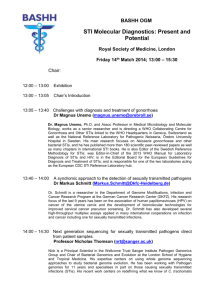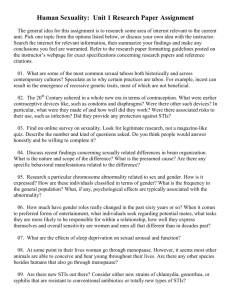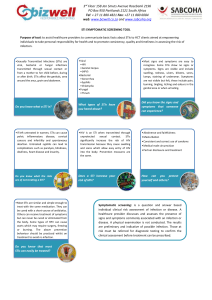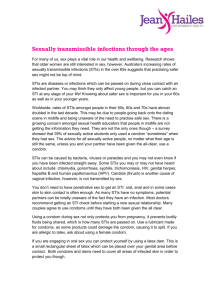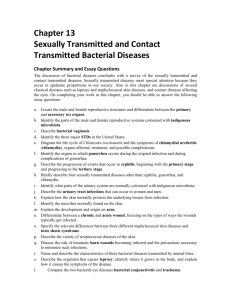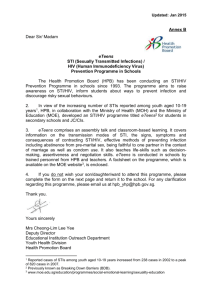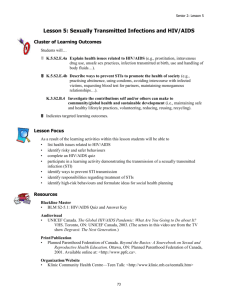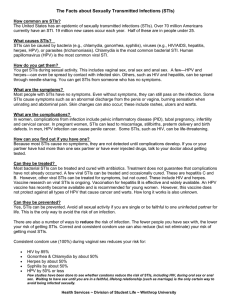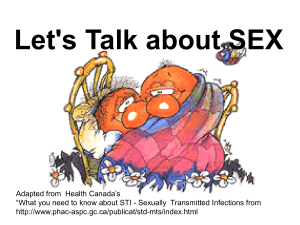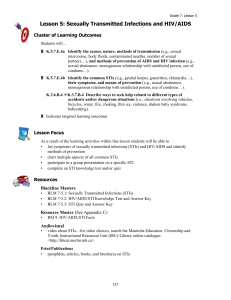BASHH OGM Afternoon Programme
advertisement
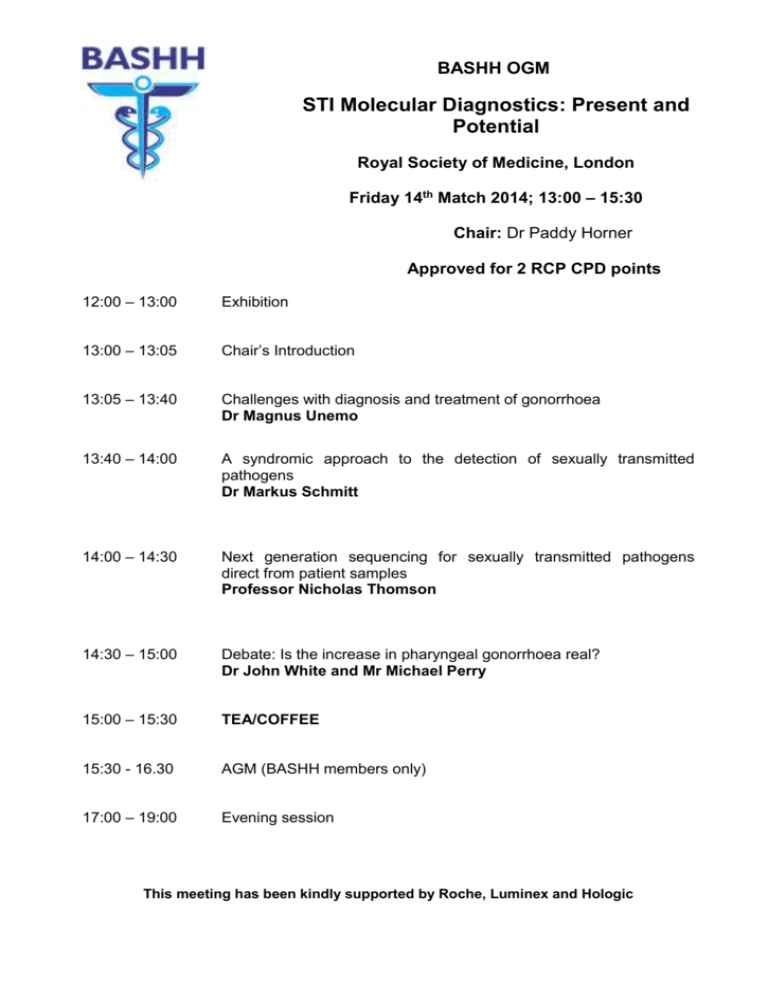
BASHH OGM STI Molecular Diagnostics: Present and Potential Royal Society of Medicine, London Friday 14th Match 2014; 13:00 – 15:30 Chair: Dr Paddy Horner Approved for 2 RCP CPD points 12:00 – 13:00 Exhibition 13:00 – 13:05 Chair’s Introduction 13:05 – 13:40 Challenges with diagnosis and treatment of gonorrhoea Dr Magnus Unemo 13:40 – 14:00 A syndromic approach to the detection of sexually transmitted pathogens Dr Markus Schmitt 14:00 – 14:30 Next generation sequencing for sexually transmitted pathogens direct from patient samples Professor Nicholas Thomson 14:30 – 15:00 Debate: Is the increase in pharyngeal gonorrhoea real? Dr John White and Mr Michael Perry 15:00 – 15:30 TEA/COFFEE 15:30 - 16.30 AGM (BASHH members only) 17:00 – 19:00 Evening session This meeting has been kindly supported by Roche, Luminex and Hologic Speaker Profiles Dr. Magnus Unemo, Ph.D. and Assoc Professor in Medical Microbiology and Molecular Biology, works as a senior researcher and is directing a WHO Collaborating Centre for Gonorrhoea and Other STIs linked to the WHO Headquarters in Geneva, Switzerland as well as the National Reference Laboratory for Pathogenic Neisseria, Örebro University Hospital in Sweden. His main research focuses on Neisseria gonorrhoeae and other bacterial STIs, and he has published more than 180 scientific peer-reviewed papers as well as many chapters in international STI books. He is also Editor of the Swedish Reference Methodology for STIs; was Editor-in-Chief of the 2013 WHO Manual for Laboratory Diagnosis of STIs and HIV; is in the Editorial Board for the European Guidelines for Diagnosis and Treatment of STIs; and is responsible for one of the two laboratories acting as the European CDC STI Reference Laboratory hub. Dr. Markus Schmitt is a researcher in the Department of Genome Modifications, Infection and Cancer Research Program at the German Cancer Research Center (DKFZ). His research focus of the last 9 years has been on the association of human papillomaviruses (HPV) on cancer of the uterine cervix and the development of biomolecular technologies for improved cervical cancer precursor screening. Dr. Schmitt has also developed several high-throughput multiplex assays applied in many international cooperation’s on infection and cancer including one for sexually transmitted infections. Professor Nicholas Thomson a Principal Scientist in the Welcome Trust Sanger Institute Pathogen Genomics Group and Chair of Bacterial Genomics and Evolution at the London School of Hygiene and Tropical Medicine. His expertise centers on using whole genome sequencing approaches to study bacterial genome evolution. He has been working with Pathogen genomes for 11 years and specialises in part on those causing sexually transmitted infections (STIs). His recent work centers on redefining what we know of C. trachomatis evolution and epidemiology using whole genome resolution data. To extend their population based studies his group has also developed methods to sequence Chlamydia directly from uncultured discarded clinical swabs which he is now applying to other STI's. Dr. John White FRCP is an Australian Sexual Health Physician who has been working in the UK since 2004 as a consultant physician in the Department of Genitourinary Medicine at Guy’s and St Thomas’ Hospitals in London. His professional interests include bacterial STIs, sexual health of men who have sex with men (MSM) and diagnostic tests for HIV/STIs. He has a keen interest in lymphogranuloma venereum infection in MSM and is involved in several research studies involving the assessment of diagnostic tests for bacterial STIs and HIV. He is Chair of the British Association of Sexual Health & HIV Education Committee and also sits on the Core Group of the European Collaborative Clinical Group of the International Union against Sexually Transmitted Infections (IUSTI). Since 2009 he has been Editor-inChief of the International Journal of STD & AIDS. Mr Michael Perry is a Clinical Scientist working within the Public Health Wales National Molecular Diagnostic Unit at the University Hospital of Wales, Cardiff. Michael sits on the core group of the Bacterial Special Interest Group of the British Association of Sexual Health & HIV. During the last 10 years he has been instrumental in the development and implementation of a wide range of molecular microbiology diagnostic methods and strategies in Wales including those recently introduced for the detection of N. gonorrhoeae.
